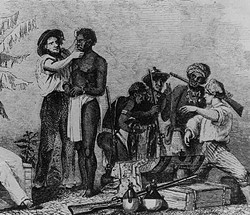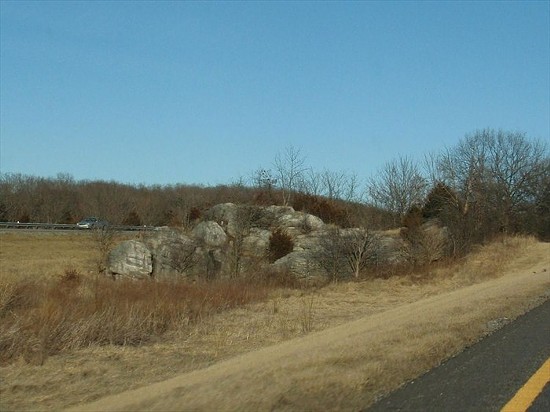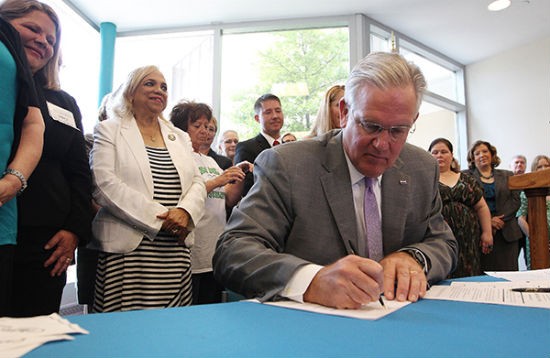About 80 miles west of St. Louis on I-70 sits "Slave Rock" visible in the median of the interstate, with a name tied to the slave auctions that once occurred at the site.
And it is because of the "shameful scenes of human bondage" that the name represents that Governor Jay Nixon announced today he does not support a plan to rename a part of the interstate there -- arguing that it would erase the slave name and gloss over this dark history of the site.
State lawmakers had widely supported legislation that included renaming a Montgomery County portion of I-70 "Graham's Picnic Rock Highway," -- sending the proposal along to the governor -- who announced today he is vetoing the measure.
"This designation would have elevated one history of the site above all others, thereby defining this landmark and its historical significance for generations to come," Nixon says in a statement. "This attempt to erase the name 'Slave Rock' from this site, without any public debate, cannot become law."
The Graham Picnic name is a reference to Dr. Robert Graham, the former owner of the farm where the rock is located. It was apparently popular in the 1880s to drive with horse and buggy over the old Boone's Lick Road to the Mineola Spring and Graham Cave for a picnic there.
Census records from the mid-19th century, the governor's office says, show that he was once a slave owner in Montgomery County.
Still, Nixon argues that the new name is problematic. His veto message says:
[I]n sharp contrast to the idyllic images of picnicking travelers conjured by the name "Graham's Picnic Rock" are the shameful scenes of human bondage represented by the rock's other name--"Slave Rock." The rock's name as "Slave Rock" comes from the widely held belief that slave auctions occurred at the site, perhaps related to Graham's slave ownership prior to abolition.
A renaming like this, he says, requires a "robust public debate so that all interested parties' voices can be heard."
The provision, however, was added as a floor amendment and thus never discussed at a public hearing, he points out.
Here's his full veto message.
Send feedback and tips to the author. Follow Sam Levin on Twitter at @SamTLevin.








